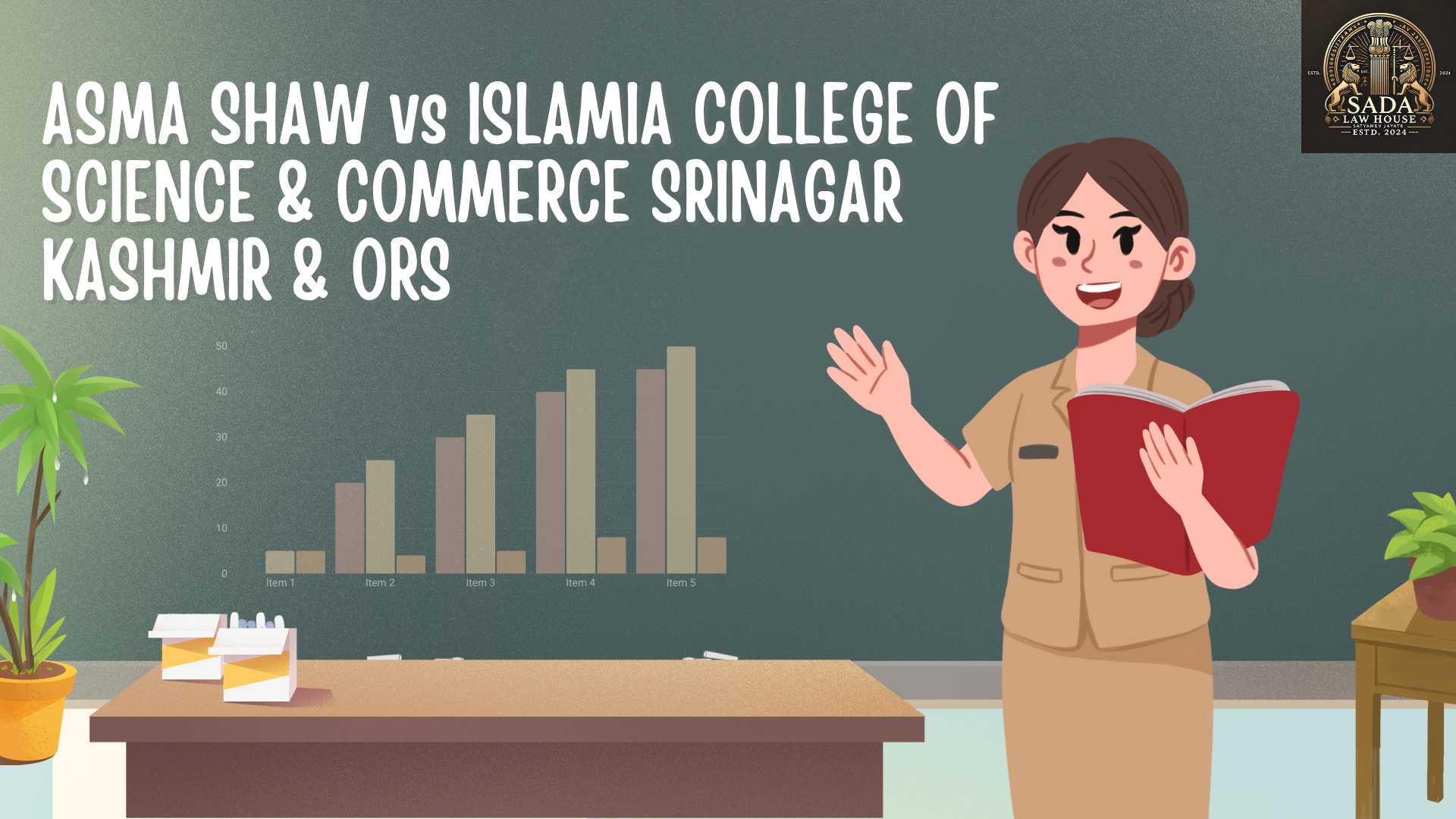Asma Shaw vs. The Islamia College of Science & Commerce, Srinagar & Others
- Reha Bhargav
- 14 October, 2025

Introduction:
The case of Asma Shaw vs. The Islamia College of Science & Commerce, Srinagar & Others pertains to a service matter concerning pay protection for a lecturer in Jammu & Kashmir. The appellant, Asma Shaw, was initially appointed as a contractual lecturer and later selected for a permanent post in the same college through the Jammu & Kashmir Public Service Commission (JKPSC). Upon her permanent appointment, she was denied pay protection for her earlier service. The Supreme Court was called upon to decide whether such denial violated Article 77-D of the Jammu & Kashmir Civil Service Regulations, which safeguards continuity of pay when a government employee moves between posts through due process.
Background / Facts of the Case:
Asma Shaw served as a contractual lecturer in the English Department of The Islamia College of Science & Commerce, Srinagar, a government-aided institution.
Later, she participated in the regular recruitment conducted by JKPSC and was selected as a permanent lecturer in the same college.
Despite performing the same duties as before, she was denied pay protection, meaning her previous salary and experience were not considered in fixing her new pay scale.
She filed a writ petition before the Jammu & Kashmir High Court, which dismissed her claim, stating that her contractual service could not be considered for pay protection.
Dissatisfied, she appealed to the Supreme Court of India, asserting that such denial violated equality principles and the spirit of Article 77-D.
Issue of the Case:
Whether a lecturer initially appointed on a contractual basis and later selected for a permanent post in the same institution through proper selection is entitled to pay protection under Article 77-D of the Jammu & Kashmir Civil Service Regulations.
Judgment:
The Supreme Court allowed the appeal, granting pay protection to Asma Shaw.
Key observations:
The Court held that her appointment through JKPSC was valid and regular, and her earlier service was continuous and in the same role.
Denying her pay protection would violate the principle of equality under Article 14 of the Constitution and “equal pay for equal work.”
The Court emphasized that Article 77-D should be interpreted liberally and purposively, ensuring fairness for employees who continue in the same role after regularization.
The Bench clarified that the appellant was not claiming seniority or back wages, but only fair salary fixation acknowledging her previous service.
Accordingly, the Court directed the college and concerned authorities to grant pay protection and refix her pay in accordance with her prior contractual service.
Conclusion:
The Supreme Court’s decision reaffirmed the principles of fairness, equity, and continuity in public employment. It ruled that when an employee performs the same duties before and after regular appointment, pay protection cannot be denied merely because the earlier service was contractual. The judgment strengthens the interpretation of Article 77-D and ensures that contractual employees who later secure permanent posts through due process are treated equitably in matters of pay fixation.
Case Laws






